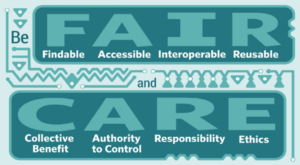IFLA Celebrates World Book Day with a Spotlight on Indigenous Languages
21 April 2023
Every year, UNESCO invites the international community to celebrate World Book and Copyright Day on 23 April. This day recognises books as a “link between the past and the future, a bridge between generations and across cultures” and calls for celebrations of the power and joy of books.
IFLA supports UNESCO’s commitment to promoting books and reading. We are proud to be a member of the advisory committee for UNESCO’s World Book Capital Programme , alongside UNESCO, the International Publishers Association, the International Authors Forum and the European and International Booksellers Federation.
This year, UNESCO is linking the power of literature and storytelling, including oral tradition, with the goal of the with the International Decade of Indigenous Languages (IDIL 2022-32): to protect and revitalise Indigenous Languages.
Libraries Supporting Indigenous Languages
Language is vital to the well-being, cultural practices, and living heritage of Indigenous peoples. For this reason, language has long been used as a tool for oppression and forced assimilation. Indigenous communities around the world have endured severe limitations to their ability to speak their languages and transmit them to future generations.
The IFLA Statement on Indigenous Traditional Knowledge (2002) recognises that Indigenous traditional knowledge is “vulnerable,” “both because it is exploitable and has been exploited, and because of the loss of Elders and the significant decline in emphasis on transmission of this knowledge to younger generations in the face of pressures for modernisation”.
Language and culture are indelibly tied – and within its history of suppression also lies an opportunity. Urgently working to protect and revitalise Indigenous languages is a step towards supporting and advancing the Rights of Indigenous peoples to self-determination, and to human rights and fundamental freedoms in broad terms.
The IDLD, and within it, days like World Book Day 2023, offer the opportunity to highlight the important intersections between libraries and access to knowledge, education, culture, and language.
Public Libraries
The 2022 IFLA/UNESCO Public Library Manifesto upholds public libraries as the local gateway to knowledge, provides a basic condition for lifelong learning, independent decision-making and cultural development of the individual and social groups.
The Manifesto makes special note of how the mission of public libraries impacts Indigenous communities, through efforts supporting the, “preservation of, and access to, local and Indigenous data, knowledge, and heritage (including oral tradition), providing an environment in which the local community can take an active role in identifying materials to be captured, preserved and shared, in accordance with the community’s wishes.”
Examples can be found around the world of public libraries highlighting their collections of Indigenous language books, for children and young readers, and for readers of all ages.

A wonderful example of proactive library action can be found at the Trøndelag County Library in Norway, where library staff have been partnering with the Saami community to create more children’s books in the South Saami language.
Working with publishers and local translators, the library has published translations of popular children’s books. These books help excite children to read in the South Saami language and encourage their use of the language in their everyday life. Noting the current lack of translators, a longer-term goal of the project is to inspire a new generation to transmit the language even further.
Beyond publishing translations of popular stories, the project is also focussing on publishing books reflecting Saami culture, including stories borrowed from other Saami communities, as well as wider Indigenous experiences from around the world.
Read more about the project in this Guest Blog by Morten Olsen Haugen: Library Turns Publisher to Promote Indigenous Language Reading.
National Libraries, Memory and Research
There is a role for a multitude of library types in revitalising access to Indigenous Languages. For example, the digital infrastructures of the National Library of Finland has not supported the Sámi languages, despite their status as official regional languages. To rectify this, the National Library has launched a project that will support the integration of the Northern Sámi language into its digital services.
Specifically, this project will help improve search services, terminology and ontology services, and services promoting the use of ICT products in the Northern Sámi language – helping to foster the use of North Sámi resources in education, culture, and research. Find out more here: Improving linguistic equality in national infrastructures.
The National Library of Aotearoa New Zealand provides an example of how documentary heritage can be used to preserve and transmit Indigenous history, memory, and language within the fabric of the country’s memory. The library’s permanent exhibition, He Tohu, highlights three key documents that shaped Aotearoa New Zealand. This is accompanied by a series of learning tools, including short films bringing the stories of these documents to life in te reo Māori. Explore them here: He Tohu.
De-colonising Access to Knowledge
Beyond access to books in Indigenous languages, a deeper element to Indigenous knowledge access is the recognition of the role that language plays on knowledge systems and cataloguing of information.
Indigenous librarianship calls attention to the cultural harm that libraries which are structured around the epistemologies of colonising peoples continue to inflict, even unintentionally, on Indigenous patrons.
Integrating Indigenous worldview and knowledge systems into the knowledge society is a critical aspect of healing and empowering Indigenous communities. In this, there is no one-size-fits-all solution; cooperation is required to consider local context and user needs, and enable Indigenous communities to determine how their local knowledge and materials are managed.
The Special Issue of the IFLA Journal on Indigenous Librarianship provides expert discourse on decolonising the way information and knowledge are managed and imagined. For example, the authors of the article, “Indigenous resource management systems as models for librarianship: I waiwai ka ‘aina”, propose a model of librarianship that centres the core worldview of the Hawaiian people, that of the relationship with ‘a¯ina (the land).
Our genealogies and cosmologies teach us that we are physically and spiritually born of these islands. This intimate connection to our environment shapes how we understand and experience life.
We therefore propose a (k)new model for Hawaiian librarianship, with our relationship to ‘a¯ina as our center and focus. In this way, we divest ourselves from harmful colonial epistemologies, thus affording the opportunity to imagine the possibilities for Hawaiian librarianship to contribute to a thriving la¯hui (“nation,” “people”).
Access this article, and the full Special Edition of the IFLA Journal online: IFLA Journal. October 2021 [Special Issue: indigenous librarianship].
Another example of Indigenous language and ways of knowing informing library epistemologies can be found at the X̱wi7x̱wa Library at the University of British Colombia, Canada. This library provides a hub of academic and community Indigenous scholarship which centre Indigenous approaches to teaching, learning, and research.
The X̱wi7x̱wa Library reflects the self-identifies and traditional knowledge of Indigenous people in its use of First Nations House of Learning (FNHL) subject headings. Integrating traditional ways of knowing and understanding into the way resources are catalogued, linked, and discovered reshapes the power paradigm through knowledge management.
For further reflection on challenges and considerations for anti-colonial knowledge efforts within knowledge institutions, look to a recent presentation by Stacy Allison-Cassin, Chair of IFLA’s Indigenous Matters Section, organised by Creative Commons: Anticolonial Knowledge: Discussion with Stacy Allison-Cassin – YouTube
World Book Day is a good opportunity to reflect on how knowledge is transmitted – both through library resources and through the way these resources are categorised, described, and contextualised.
Indigenous Data and Open Practices
The transmission of Indigenous knowledge, culture, and language also carry over into resources in the digital environment. The CARE Principles for Indigenous Data Governance complement the FAIR Principles (findable, accessible, interoperable, reusable) of the open data movement.

Indigenous thought leaders stress that open data and open science do not fully recognise the rights and interests of Indigenous Peoples. The CARE Principles reflect the struggle of Indigenous communities to assert control over the application and use of Indigenous data and Indigenous Knowledge. These principles assert the right for Indigenous peoples to use their own data to drive Indigenous innovation and self-determination.
For more, refer to this Creative Commons Open Culture Voices Vlog, again featuring Stacy Allison-Cassin. She discusses the benefits of Open GLAM practices, highlighting opportunities to use platforms like Wikimedia Commons to enable meaningful interactions with collections.
However, she stresses that open principles and practices should be carried out in recognition that not all materials should necessarily be open. This especially refers to Indigenous and traditional knowledge that hold special value to the communities.
Indigenous Matters at IFLA
IFLA’s Indigenous Matters Section is helping engage the global library field in discussions around Indigenous librarianship.
The Section is working on strengthening relationships with the International Indigenous Librarians’ Forum (IILF) and other international and regional associations and professional bodies, in support of engagement with the IDIL 2022-2032.
In their current action plan, the section is working to develop a set of guidelines for library services with Indigenous peoples. These guidelines will aim to educate and promote Indigenous worldviews and protocols for GLAM associations and institutions that serve Indigenous communities, have Indigenous materials, seek to acquire Indigenous materials, or employ Indigenous peoples.
Coming up, the Indigenous Matters Section will organise an open session at the 2023 World Library and Information Congress to introduce and frame the development of these Guidelines. It will launch a discussion on the Guidelines and encourage feedback and participation from the global library community.
A call for proposals for this session is currently open, find out more here: WLIC 2023 Indigenous Matters Call for Proposals.
Language is the way information is understood and communicated. It transmits ideas, imagination, worldview, beliefs, knowledge, and culture.
Libraries, as hubs of information and champions of freedom of expression, can be critical players in efforts to enable language, in books, storytelling, data, and research, to drive reconciliation and enable self-determination for Indigenous people.
How does your library celebrate World Book and Copyright Day? Does your library work to protect and revitalise Indigenous languages? Share your stories!
On social media, tag your posts #WorldBookDay and #IndigenousLanguages to join the global conversation.
Visit the website of the International Decade of Indigenous Languages to find out more about the action plan for the decade and ways you can get involved.
Contact: Claire.mcguire@ifla.org